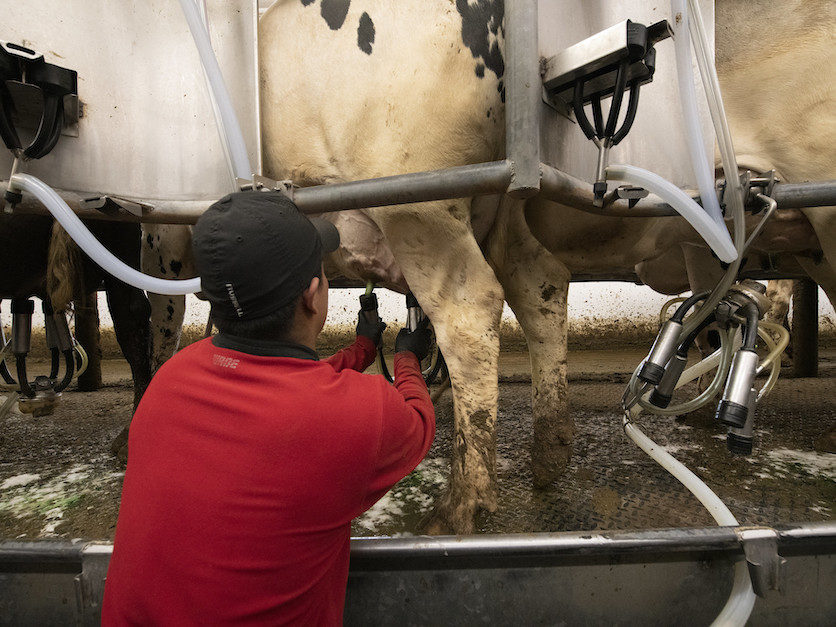A social media storm in the United Kingdom surrounding a new feed additive aimed at reducing greenhouse gas emissions from cattle has led to a government initiative to combat misinformation. This incident, while successfully addressing public misconceptions, sheds light on the dangers misinformation poses to global agriculture trade and technological advancement, signaling potential challenges in the future.
Towards the end of last month, Arla Foods, the UK’s largest dairy product producer, announced plans to trial a new feed additive called Bovaer at approximately 30 of its farms. This additive, as reported by the Danish Center for Food and Agriculture, has shown to reduce intestinal methane emissions from cows by up to 27%. Despite being approved by numerous food regulatory bodies in various countries, concerns were raised online regarding the safety of the product due to the use of certain compounds.
Some UK dairy farms not involved in the Arla trial also took to social media to clarify that they do not use the feed additive or have any intention to do so in the future. In response, Robin May, the UK’s chief scientific advisor at the Food Standards Agency, and the UK government took steps to debunk the unfounded claims circulating on social media.
Paul Bleiberg, the executive vice president for government relations at the National Milk Producers Federation, emphasized that this incident serves as a valuable learning opportunity for the agricultural industry. He highlighted the importance of addressing misinformation surrounding new technologies and innovations that could benefit dairy farmers.
Representatives from the dairy sector expressed satisfaction with the UK government’s response to the situation. However, they cautioned that the misinformation challenges faced in the UK could potentially impact the US agriculture sector as it continues to innovate.
Matt Herrick, the executive vice president at the International Dairy Foods Association, noted that while Bovaer is more widely used in the UK than in the US, the introduction of any new technology in agriculture or food production carries inherent risks of misinformation.
Despite the misinformation and boycott threats, Arla’s sales in the UK remained unaffected. The situation highlighted the importance of proactive communication strategies to address misinformation as new products are introduced to the market.
The agriculture sector is particularly susceptible to misinformation, as noted by Ataharul Chowdhury, a professor at the University of Guelph in Canada. He emphasized that the industry’s adoption of new technologies can be hindered by misinformation, which can impact global trade and food security.
John Torres, a senior director at the Biotechnology Innovation Organization, highlighted the emotional connection consumers have with food, making misinformation surrounding food safety a significant concern. He stressed the need for industry engagement to address public concerns and build trust in agricultural innovations.
The UK dairy industry’s experience with misinformation serves as a reminder of the importance of proactive communication and education efforts to combat misinformation in the agricultural sector. As the industry continues to innovate, addressing misinformation will be crucial to ensure public trust and global competitiveness.
